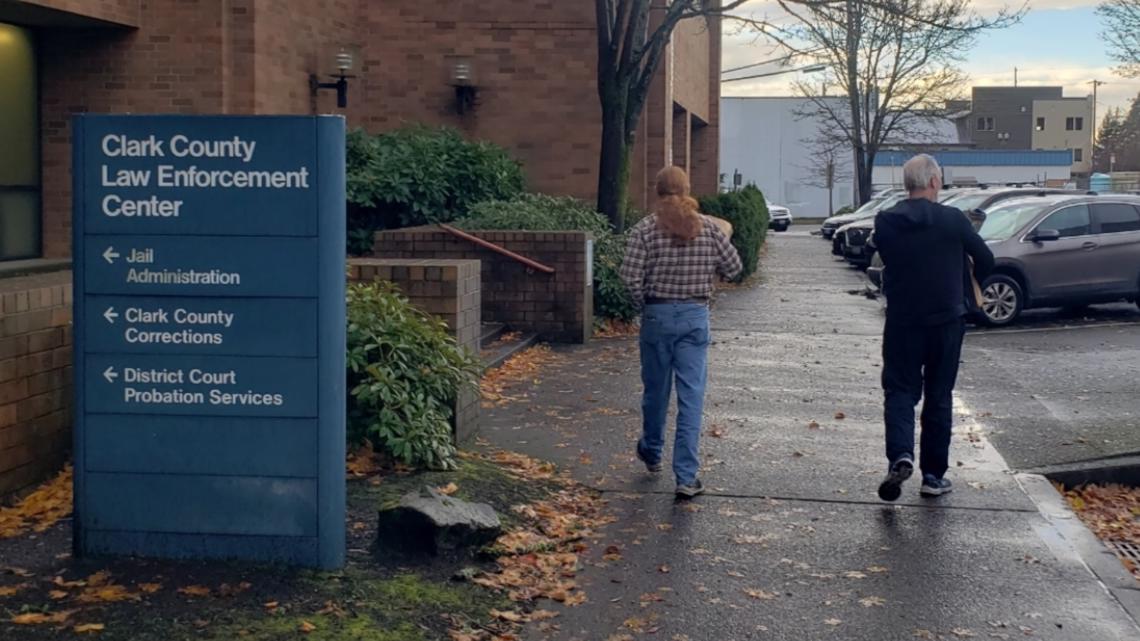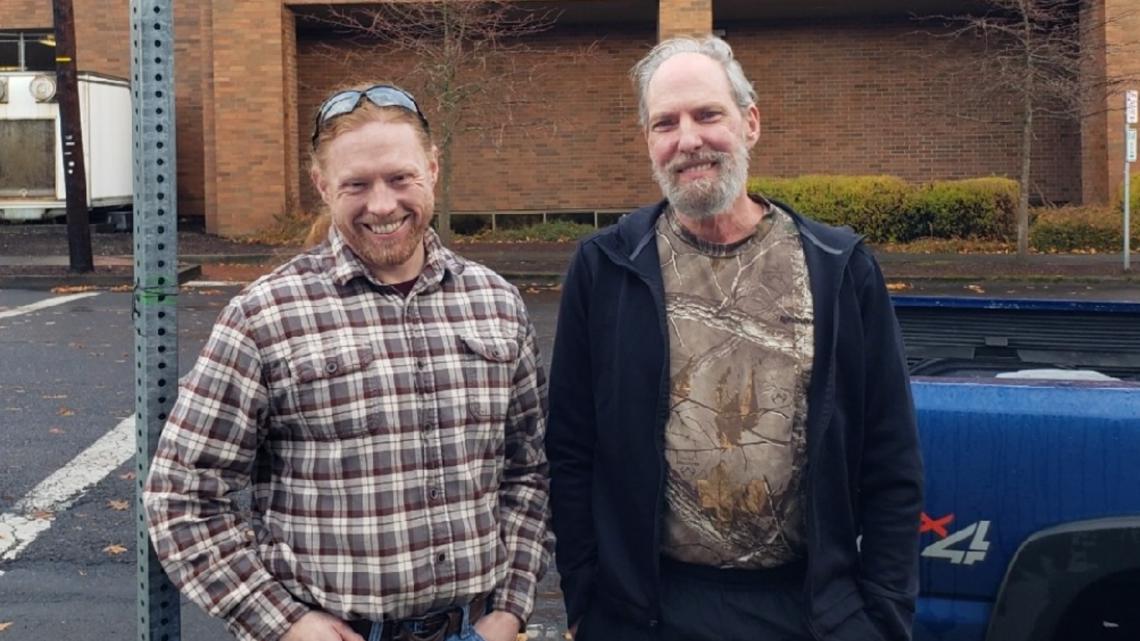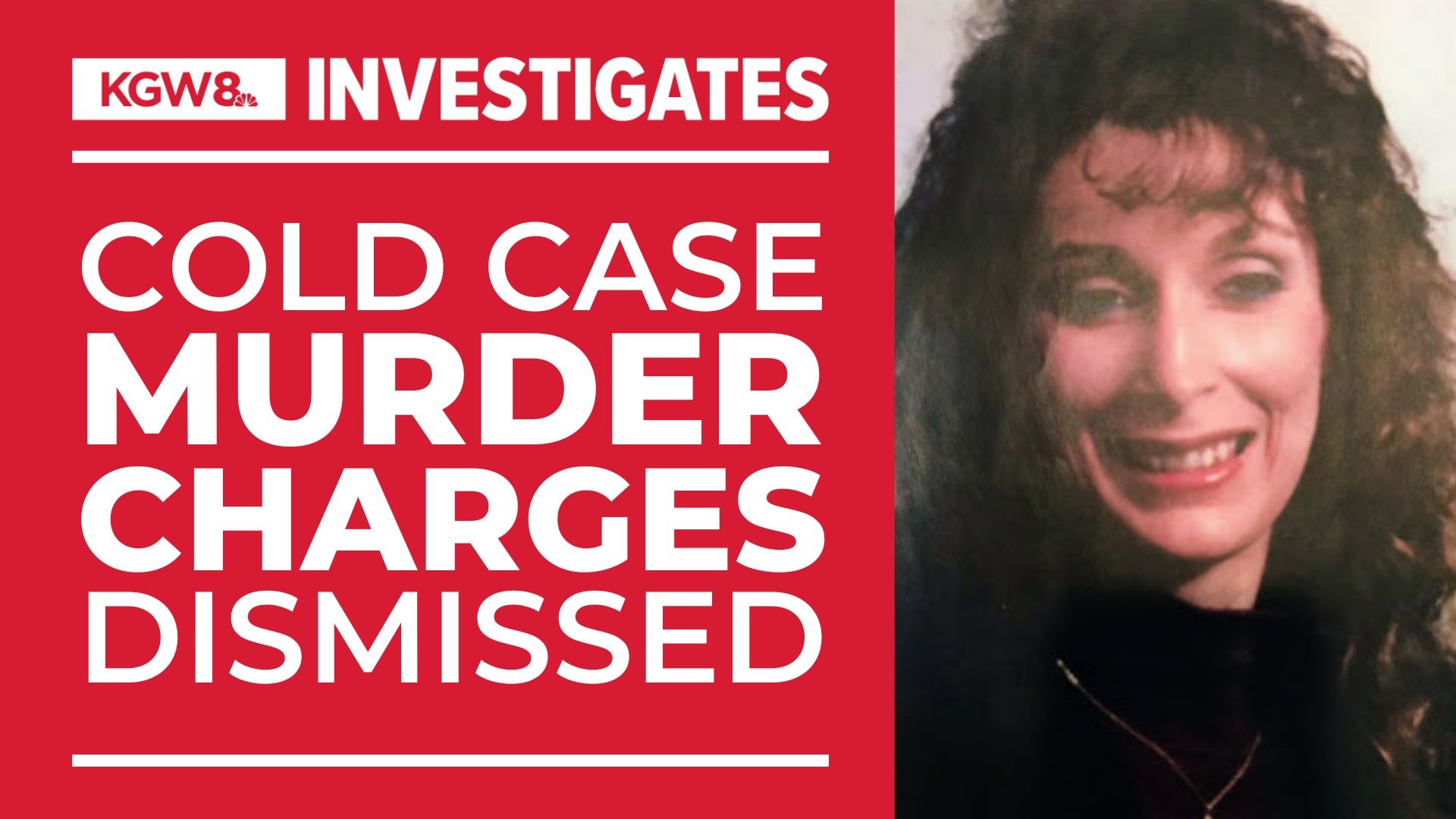PORTLAND, Ore. — Just five days before trial, Clark County prosecutors dismissed a case against an Oregon man charged with the 1994 rape and murder of a young Vancouver mother.
Investigators used DNA evidence and a public genealogy database to help crack the nearly 25-year-old cold case. But prosecutors admitted new evidence casts doubt on the case. On Wednesday, Richard Knapp, 60, was released from jail after spending nearly three years behind bars.
"He's overwhelmed," said Shon Bogar, one of Knapp's defense lawyers.
Knapp's defense claims another suspect in the case changed their story during a recent deposition and a new witness provided key information, leading prosecutors to dismiss the murder charges.


On July 17, 1994, police found the body of Audrey Frasier, also known as Audrey Hoellein, in her Vancouver apartment. Frasier, who was 26, had been strangled to death in bed. Detectives never made any arrests in the case.
Years later, Vancouver detectives revisited the cold case by contacting a Virginia-based company which does DNA analysis. The process includes creating genealogy profiles of different people using DNA testing. People can submit their DNA to find out more about their own family history.
Detectives submitted genetic data from DNA found at the crime scene into the public database. The process pointed detectives to Knapp, who lived in the area around the time of Frasier's murder.
On April 29, 2019 detectives arrested Knapp during a traffic stop near his home in Fairview. At the time, Vancouver police explained how they cracked the nearly 25-year-old cold case through cutting-edge DNA technology and a public genealogy database. Similar techniques have been used to solve other crimes, including the notorious serial killer known as the Golden State Killer.
Knapp's defense lawyers said police relied too heavily on the DNA evidence and missed key evidence in the case.
"DNA technology is immensely powerful, but it is not a silver bullet," said Jack Green, one of Knapp's defense lawyers. "If it is not used in the proper way, in conjunction with competent police work, you are going to end up with more situations like this."


Knapp's defense claims another suspect in the case changed his story during a recent deposition. Frasier's then-neighbor admitted under oath to having sex with Frasier the night she died, the lawyers said. The neighbor, who KGW is not naming because he has not been charged, was the last one to see Frasier alive and called 911 to report her death the following day, according to the defense. Additionally, Knapp's lawyers said DNA testing confirmed the neighbor's semen was found on the victim's bed spread.
After the neighbor's deposition in October, the defense said it located and spoke with an eyewitness now living in Georgia. The defense would not reveal what critical information this man shared or what he witnessed. Law enforcement was aware of the witness but had never interviewed the man while investigating Frasier's murder.
"It wasn't somebody who was hiding," Bogar said. "It wasn't somebody who was ducking out. They just never called him."
Deputy Prosecuting Attorney Jeff McCarty admitted that new evidence changed the way prosecutors viewed the case. Prosecutors didn't feel confident they could prove beyond a reasonable doubt that Knapp was responsible for Frasier's murder.
On Wednesday, the Clark County Prosecuting Attorney's Office asked a judge to dismiss the case and release Knapp immediately.
"We know that we either released a killer from jail or we released an innocent person who was wrongly held for three years," McCarty said. "We know that one of those things happened and that is not an easy decision to make."

